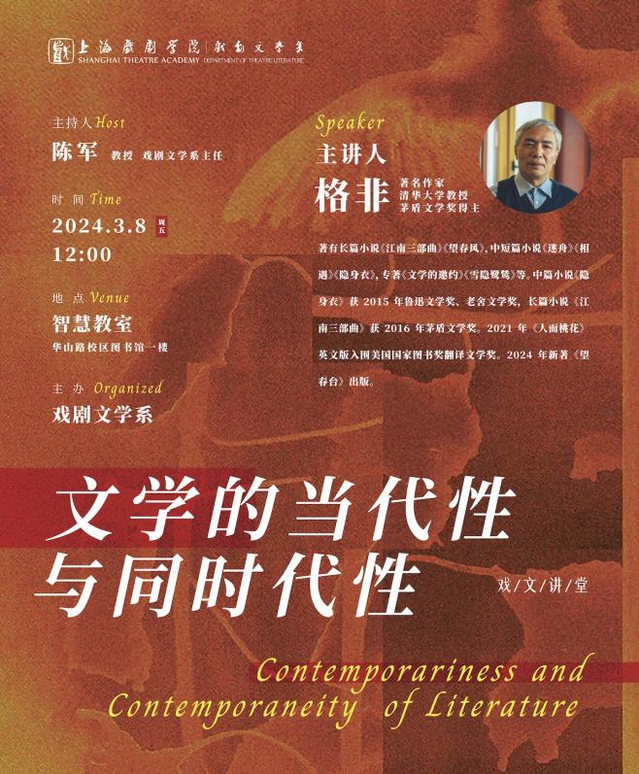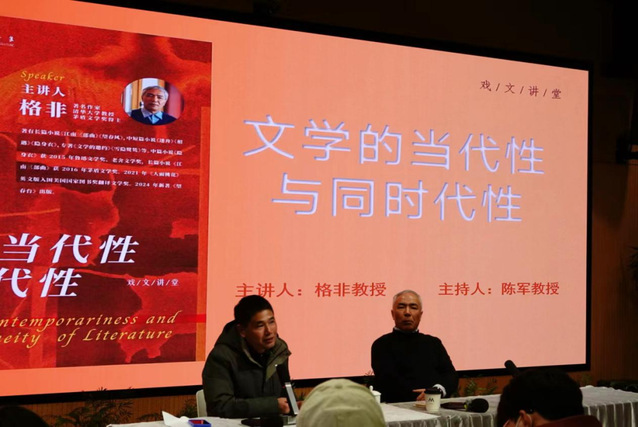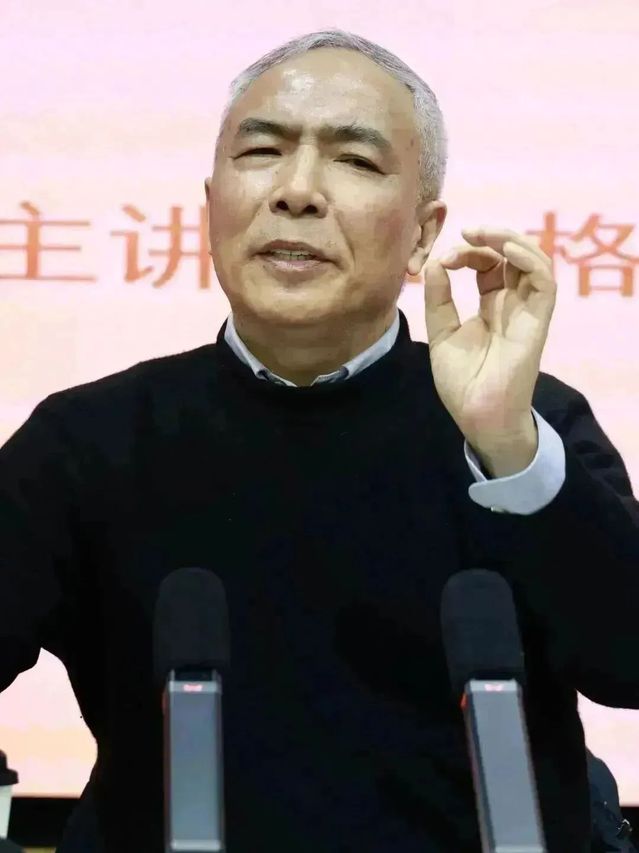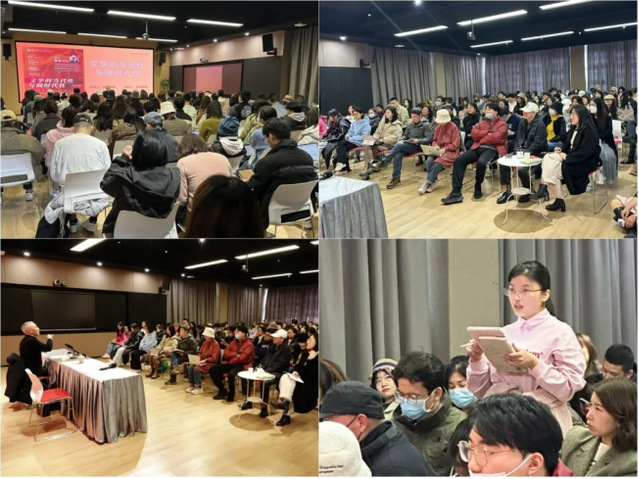The "Dramatic Literature Lecture Series" kicked off for the new semester.
The first guest speaker for Shanghai Theatre Academy's 2024 "Dramatic Literature Lecture Series" was the famous writer Ge Fei, a professor from Tsinghua University’s Chinese Literature Department and a recipient of the Mao Dun Literature Prize, who were in Shanghai participating an event together with Nobel Prize in Literature laureate, Abdulrazak Gurnah.
Ge Fei delivered an academic lecture to teachers and students of STA titled "Contemporariness and Contemporaneity of Literature".

Professor Chen Jun, dean of the Department of Dramatic Literature at the Shanghai Theatre Academy, mentioned while hosting the lecture that Professor Ge Fei is a typical representative of scholar-type writers, and that his award-winning work "Jiangnan Trilogy" for the Mao Dun Literature Prize marks a breakthrough in contemporary literature and stands as a foundational piece. The lecture was organized to cultivate the teachers and students' keen sense of literature, awareness of cultural phenomena, and to further animate their creative philosophizing.

The theme of Ge Fei’s lecture stems from his interest in the aspect of "Time" in literary creation. "Every generation has its literature," and contemporary writing does not naturally possess contemporariness. By focusing on the keywords "contemporariness" and "contemporaneity". Ge Fei made extensive references and immersed himself in the historical context to analyze the concepts of "past", "present" and "future", along with their "modernity" backgrounds from both Chinese and Western cultures. Pointing out with the sharp observations of a novelist, he said that we are living in an "overlapping state" where a single place might simultaneously embody urban and rural areas, and it reflects the present and also encapsulates both past and future. Thus, in literary creation, only by shattering the linear concept of time and the binary division can we establish true connections across all times and reveal the era’s signs that are universally present in the "past, present and future." This represents the truly significant task for literary writers. Though the lecture’s theme was philosophically speculative, the speaker captivated the audience with the vivid and humorous language and storytelling typical of a novelist.

In his lecture, Professor Ge Fei shared his reflections on "writing".
"Writing is not about recollection, but rather, reminiscence. You remember going fishing with your father, but perhaps you’ve never actually been fishing; things you've never experienced might suddenly appear from the flow of time, and the father you recall may even be silent and wordless. Under the silk-like sunshine, you must attentively listen to the sound of silence." Therefore, writing involves actively stepping into a room, submerging oneself into darkness, searching for the unseen or unfelt from the past, seeking out light, and establishing a genuine connection with them. This is an active retrieval process where many things can only exist through reminiscence, not mere recollection.
Ge Fei’s poetic language elucidated the essence of writing, triggering rounds of applause from the teachers and students present and perfectly interpreting the lecture’s main theme, "Time."

Ge Fei noted that today we all talk about our hometown, but the real hometown is the homeland of language and culture, and that Chinese culture can only continue if it innovatively preserves its essence, and creatively carries on and develops - that’s how a civilization truly endures.



